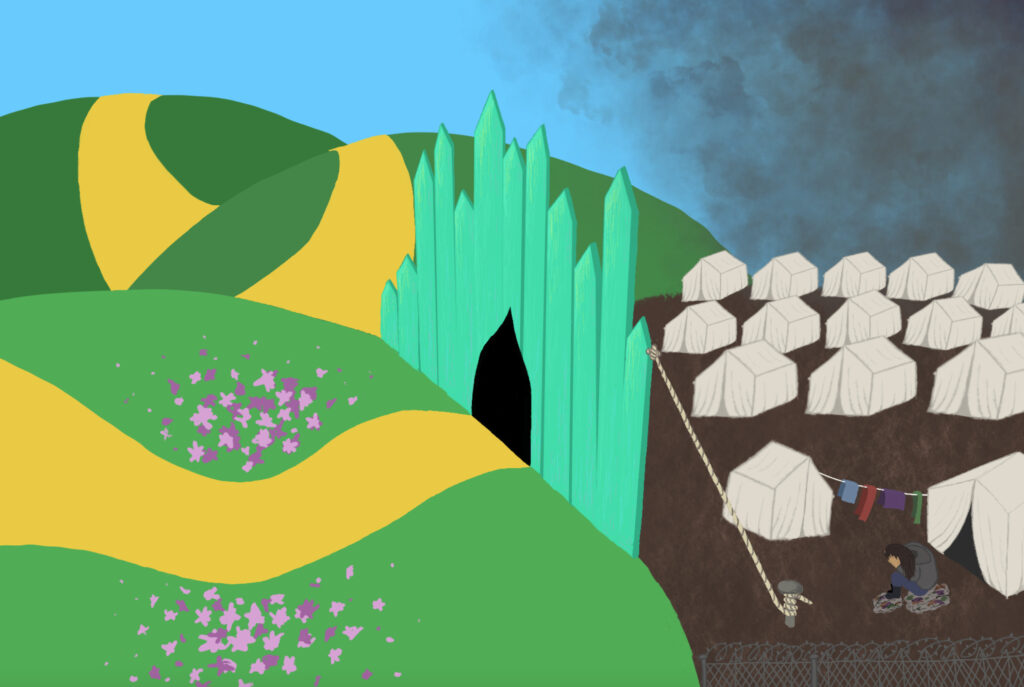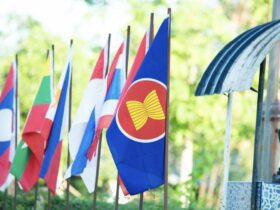LOS ANGELES — In Bangladesh, Rohingya refugees who have fled from neighboring Myanmar are being barred from enrolling in local schools and receiving any form of education offered outside their refugee camps. These barriers to education are the result of deliberate policies enacted to deprive refugees of accessing resources, which further government efforts to prevent them from integrating into society.
Unfortunately, this is not the only example of such discrimination. Across the world, refugees are deprived of their human rights in the places that should act as their safe haven from the turmoiled countries they fled. Instead, they flee one set of dangerous conditions to another.
In Sierra Leone, for example, poor housing infrastructure within refugee camps led to rodent infestations, causing a large outbreak of Lassa Fever throughout the encampment. The camp’s poor storage of food was what attracted the rats, causing over 2,000 refugees to contract the disease. The stigma around Lassa Fever makes it even harder to stop the disease from spreading, as many refugees are afraid to report their illness to the camp’s health authorities. The combination of poor organization and lack of health resources has caused thousands of refugees to become ill, some to the point of death.
Across the world, these intertwined challenges of public health, sanitation and hygiene and refugee camps persist. In Lebanon, the combination of constant flooding and poor ventilation led to many refugees contracting tuberculosis. The housing provided in the refugee camps were not properly constructed for Lebanon’s large rainfall during the winter months, making the refugee’s living spaces damp and humid — the perfect breeding ground for TB. As the conditions worsened, so did the number of TB cases within refugees. The proportion of Syrian TB cases residing in refugee camps (29.3%) was higher than the proportion of Syrians refugees residing in camps (17.1%). Similar to the situation in Sierra Leone, many refugees are afraid to receive help for their illness, or are met with under sufficient resources (such as medical professionals, equipment, and hospitals).
Until the government takes the time to improve the infrastructure within their camps, many refugees will continue to become ill, causing the spread of TB to even reach other Lebanese communities.
And in Greece, these issues are disproportionately affecting women and girls, who refuse food and water for multiple days at a time to avoid using the latrines, especially latrines in dimly lit locations at night. Meervat Ali, a fifteen-year-old Syrian refugee staying at the Moria refugee camp in Lesbos, Greece told Buzzfeed News that she fears for her safety.
“Yes, I am scared. I cannot go inside because there are too many people, too many guys, too many drugs, drunk people,” Ali stated.
Women and girls make up over 40% of the camp’s population, many of whom are also fearful of using the restrooms. Toilet facilities are only cleaned once a month, with no trash bin for female products, and no hot water after 5 a.m. (which many women do not use since it is considered dark and unsafe). There is a severe lack of proper hygiene and healthcare. There are very few doctors available for the 6,000+ refugees in the camp, women are unable to find clean pads, and the unsanitary toilet facilities are home to many different illnesses.
“I thought it would be like paradise, but here I feel like a hostage” Ali said.
Ultimately, the people who seem to need help the most are the ones who are receiving it the least.
By having countless human rights stripped away, including gender equality, access to education, access to clean food and water, it comes to no surprise that thousands of refugees become ill or die while in these camps. The majority of these deaths can easily be prevented through the implementation of more sound infrastructure, and better organization in areas such as health and hygiene.
The United Nations reported that the main causes of death among refugees are the “lack of medicine, and lack of food.”
In the face of these dire conditions, many NGOs and international organizations are working tirelessly to help displaced people. However, many governments prohibit these organizations from entering the country or providing direct aid to the refugees, all in an effort to prevent this integration from occurring in the first place.
Maltreatment of the displaced is commonly fueled by cultural and religious differences. Often, refugees are denied an education, work visas, and even the ability to learn the native language, just like the Rohingya in Bangladesh. The Bangladeshi government accounts for their infringement of this human right by mentioning the lack of resources and how they intend to make reparations with Myanmar in the next few years, so there is no need to continue formal education for the refugees since they will only be there temporarily.
Similarly, many Kurds staying in Turkish refugee camps have been forbidden from setting up their own schools and education systems in Kurdish. The limited access to education within the camps solely educate students on the Turkish language and customs, ignoring any cultural learnings and identities of the Kurds.
Additionally, the majority of funding is allocated towards reintegrating refugees into society. This funding is provided by both the nation’s government, as well as any fundraising that NGOs and international organizations may have earned. Rather than improving the living conditions of the refugee camps, which are only viewed as a transitional place, most volunteers and donors focus all their efforts on finding more permanent solutions for these refugees. It is viewed as the most vital part in helping refugees regain control of their lives, and typically the step most donors and volunteers feel that they are able to help with the most.
Although this is a necessary step in the integration process and has helped millions of refugees, it still leaves those who remain in the refugee camps, some for years at a time, to suffer from the lack of resources.
Refugees are thought of and treated as visitors in their host countries, waiting to return home. This mindset jeopardizes the health and safety of all refugees, and rather than viewing refugee camps as temporary shelters, they should be considered as homes.
This change in perspective will begin a new discussion and approach toward improving the lives of 82.4 million people, and will transform the illusion of these emerald cities into a reality.







